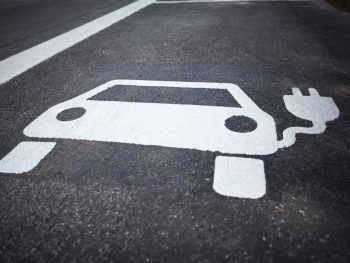Tariffs introduced for council-owned charge points
More councils in Scotland and England are introducing tariffs for electric vehicle charging to counter the increasing cost of electricity and rising demand.

Councils are saying they can no longer afford to subsidise charging
Glasgow has gone live with a tariff from today (11 April 2023), which it said would help the city the meet the future demand for charging.
Its new tariff levies a £1 connection fee for all charging units and rates of 40p per kWh for 7-22kW charging units and 70p for 50-150kW units. The council has also implemented an overstay charge of £40, automatically applied at all chargers after the maximum duration, which ranges from one hour for rapid chargers, to four hours for standard charging units in council family car parks.
Plans for the introduction of a tariff were approved by the council’s city administration committee in April 2021. The council said it had been subsidising the cost of electricity for several years as a way to kickstart a shift to cleaner, more sustainable electric vehicles, but would use the revenue to cover the operation and maintenance of public charging points in the city, which is expected to cost £1.35m in 2023.
A report presented to the council’s Environment and Liveable Neighbourhoods City Policy Committee said that commercial investment in charging infrastructure is essential to support the surging demand for electric vehicles. At the current rate of growth, up to one million of Scotland’s three million vehicles are expected to be electric by 2030.
Earlier this year, councillor Angus Millar, city convener for transport, said the introduction of a tariff in Glasgow would boost the network.
He commented: “Subsidising the public charging network has been the right thing to do and electric vehicles are now a far more common sight on our roads. Glasgow now has the most public charging points of any local authority in Scotland, but we know the growing demand for charging will outstrip the current provision before long.
“We have plans to increase our public charging points by around 35% this year, but collaboration between national and local government, along with private sector input and investment, are needed to further develop the charging network. Introducing a tariff will underpin the viability of the network as it matures into core transport infrastructure for city as well as discouraging overstaying in bays.”
Drivers took to Reddit to vent their frustrations, including one motorist who said: “This has not been a well thought out introduction of charges and will cause people to stick to ICE cars or switch back to them.”
Others pointed out that South and North Lanarkshire – which introduced tariffs on 1 November 2022 and 4 January 2023 respectively – are significantly cheaper for charging.
The Shetland Islands Council has also gone live with tariffs from today, set at 47p per kWh for 7kW and 22kW fast chargers and 57p per kWh at 50kW rapid chargers.
Moraig Lyall, chair of the Council’s Environment and Transport Committee, said: “Electric vehicle usage is increasing in Shetland. Owners of EVs have benefited from free access to council-owned charging points for some time, but it’s now time that we introduce these charges to ensure that the infrastructure continues to be sustainable.”
In England, Hastings Borough Council said it had made “the difficult decision” to introduce a cost for the use of its electric vehicle charging points from 3 April 2023, after a decade of providing free charging.
Councillor Paul Barnett, leader of Hastings Borough Council, said the council could no longer afford to subsidise charging.
“We are still focused on tackling climate change and working towards the borough becoming carbon neutral by 2030. But with costs for essential services, like housing rising significantly and with the impact of the cost-of-living crisis, changes have needed to be made so we can support residents in need.”
Price increases for private networks
It’s not just council-owned networks hiking up the cost of charging. Tesco – which ended free charging at slower devices on its Pod Point-operated network in November 2022 – announced earlier this month that it was introducing new tariffs across its network from 3 April.
Drivers using 7kW and 22kW chargers now pay 44p/kWh and 49p/kWh respectively, while the cost of using 50kW units has gone up 62p/kWh, with payments made through the Pod Point app.
BP Pulse has also rolled out new pricing for fast, rapid and ultra-fast charging across the BP Pulse-owned network, again from 3 April.
Subscriber rates start at 44p per kWh for AC 7kW chargers, rising to 63p for both 43kW-50kW units and 150kW+.
For pay-as-you-go customers, these stand at 59p and 77p while contactless/guest drivers will pay 59p and 79p respectively.

